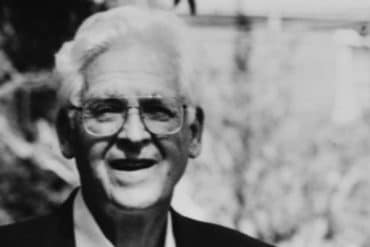 Since the day he was born, Joe Hale has been beating the odds. When his mother was nine months pregnant with him, she became afflicted with polio, leaving her paralyzed from the neck down and placed in an iron lung. No baby had ever been born in an iron lung until little Joe junior came into the world healthy with ten fingers and ten toes.Years later in his professional life, Hale miraculously went from earning $7,000 a year as a teacher, to becoming the president of a multimillion dollar energy company, this despite not knowing “a megawatt from a light bulb.” When he learned that no one had ever run seven marathons on seven continents in seven months, Hale, an ex-smoker, decided to do it and raised $250,000 for the March of Dimes. To date, his various fundraising efforts have raised over $100 million for nonprofits ranging from the Cincinnati Zoo to the YMCA. Now, in what he calls his “second act,” this Nantucket resident is trying to beat the odds once again, this time by attempting to bring light to the hundreds of millions of people who live without it world-wide.
Since the day he was born, Joe Hale has been beating the odds. When his mother was nine months pregnant with him, she became afflicted with polio, leaving her paralyzed from the neck down and placed in an iron lung. No baby had ever been born in an iron lung until little Joe junior came into the world healthy with ten fingers and ten toes.Years later in his professional life, Hale miraculously went from earning $7,000 a year as a teacher, to becoming the president of a multimillion dollar energy company, this despite not knowing “a megawatt from a light bulb.” When he learned that no one had ever run seven marathons on seven continents in seven months, Hale, an ex-smoker, decided to do it and raised $250,000 for the March of Dimes. To date, his various fundraising efforts have raised over $100 million for nonprofits ranging from the Cincinnati Zoo to the YMCA. Now, in what he calls his “second act,” this Nantucket resident is trying to beat the odds once again, this time by attempting to bring light to the hundreds of millions of people who live without it world-wide.
Talking over coffee on a dreary fall morning on Nantucket, Hale looks neatly put together in a blue collared shirt and white sweater. His eyebrows slant slightly to the sides, opening up his face and giving him an air of kindness before he even begins to speak. “We spend forty years amassing an incredible amount of experiences and skill sets in our professional lives,” he says, setting down his coffee, “and it just seems to me to be fairly selfish and a waste to not use those skills in some productive way.” I’ve read this quote from him before, and yet hearing it now, his words do not sound scripted or rehearsed, but genuine, as if he’s realizing the truth of his mantra all over again. “I truly feel that retiring in the traditional sense of the word is a selfish act.”
So instead of taking up golf, Hale, who vacationed on the island for twenty-five years until moving here nearly full-time in 2005, is using his retirement years to serve causes both locally and globally. He is president of the Theatre Workshop, vice president of development for the Community Foundation of Nantucket, development chair of the ‘Sconset Trust, and sits on the board of Egan Maritime Institute and the ‘Sconset Chapel. “To me the best way to become part of a community is to find a way to get in involved in that community,” he says. “I may have gone a little overboard.” Nantucket also serves as Hale’s base of operations for his Global BrightLight Foundation, a nonprofit set on an ambitious mission to raise the standards of living for the world’s poorest communities by bringing them solar-powered light.
This mission started three years ago during a ski trip with James Rogers, the president and CEO of Duke Energy, for which Hale serves as a consultant. The two were discussing an article in the Wall Street Journal about a Kenyan woman who was traveling long distances and spending a significant portion of her income simply to charge her cell phone. Hale thought, “Why is this cell phone so important to a woman in Kenya who doesn’t have anything?” He learned that beyond communication, cell phones serve as a virtual banking system in Africa, as phone credits have become a form of currency there. The article went on to describe how the Kenyan woman ultimately purchased a solar-powered lantern that could also be used to charge her cell phone. Not only did the lantern eliminate the woman’s travel time and expenses, but now she could safety light her home without kerosene. “So Jim and I were thinking, ‘Gee whiz, what a simple solution to such a huge problem,” Hale says. “There are 1.3 billion people in the world that have absolutely no access to electricity today, so there was a huge need for these lanterns.” Inspired, Hale and Rogers decided that they would raise money for a nonprofit that was providing these lanterns to the poorest communities, but they found that there wasn’t one out there. So the two men founded the Global BrightLight Foundation, which by the end of this year will have provided fifty thousand solar-powered lanterns in five countries around the world.
Unzipping his backpack, Hale pulls out one of these lanterns, which looks not unlike a cheap light fixture you might see on a late night infomercial. “This costs around thirty bucks, and can fundamentally change a person’s life,” he says. When thinking about making a difference in places like Africa, this simple piece of plastic is hardly what comes to mind. We think of food, medicine, money, education, and so on. But Hale explains how these lights have a trickle-down effect. He tells me how they protect women living in refugee camps in Rwanda who are regularly victims of sexual attacks and rape when they go out to use the communal latrines at night. He tells me how they allow children to study at night in Nepal, and how men and women in Haiti can continue basket weaving or cooking long after sunset.
 “Our mission is to bring clean solar light to as many of the 500 million rural poor people in the world who are categorized as ‘bottom of the pyramid,’” Hale says, “those who will likely not have access to power in our grandchildren’s lifetimes.” Today, Global BrightLight is in Rwanda, Uganda, Nepal, Haiti and Guatemala, and soon will be expanding to Peru, Bolivia, Zambia and the Ivory Coast. Over the course of this past spring and summer, Hale traveled to rural villages in Guatemala, Nepal, Rwanda and Haiti to see the impact of Global BrightLight. Returning from a trip to a village called Quixalito in Northern Guatemala, Hale wrote, “Is there anything more rewarding than to see a dream realized, a mission accomplished, a vision fulfilled?” In total, Hale has traveled to sixty-five countries, many of them twice, and his global vision for BrightLight continues to grow.
“Our mission is to bring clean solar light to as many of the 500 million rural poor people in the world who are categorized as ‘bottom of the pyramid,’” Hale says, “those who will likely not have access to power in our grandchildren’s lifetimes.” Today, Global BrightLight is in Rwanda, Uganda, Nepal, Haiti and Guatemala, and soon will be expanding to Peru, Bolivia, Zambia and the Ivory Coast. Over the course of this past spring and summer, Hale traveled to rural villages in Guatemala, Nepal, Rwanda and Haiti to see the impact of Global BrightLight. Returning from a trip to a village called Quixalito in Northern Guatemala, Hale wrote, “Is there anything more rewarding than to see a dream realized, a mission accomplished, a vision fulfilled?” In total, Hale has traveled to sixty-five countries, many of them twice, and his global vision for BrightLight continues to grow.
Where Hale came from is an important driver to everything he’s done in his life. “I like to joke that I’m a charity case myself,” he says. The son of a mailman and stay-at-home mom, Hale learned the importance of service and charity early on. After giving birth while paralyzed from the neck down by polio, Hale’s mother was approached by the March of Dimes, the nonprofit founded by Franklin D. Roosevelt to fight polio. The March of Dimes paid for Hale’s mother to be treated for six months at the same rehab facility where FDR was treated. While she regained the use of her upper body, Hale’s mother remained paralyzed from the waist down and was confined to a wheelchair for the rest of her life. “One of my earliest memories is of pushing her wheelchair own the streets of Indiana, going door to door collecting dimes for the March of Dimes,” Hale says.
Decades later, he set out to give back to the organization in a dramatic way, not so much a march, but a run. In 2007, Hale pledged to run seven marathons on seven continents in seven months to raise money for the March of Dimes — a feat that had never been done. In what became known as 7in7on7, Hale ran marathons through the frigid cold in Antarctica, down the tip of South America, on the Great Wall of China, around the base of Kilimanjaro, along the Gold Coast in Australia, and on the streets of Rotterdam, all while working full-time. Even after meeting his goal, Hale kept going,running marathons in Dubai, Easter Island, Venice and throughout the United States. When he finally came to a stop twelve marathons later, Hale had raised $250,000 for the March of Dimes.
Today, after eighty-six marathons and a new hip, Hale’s long-distance running days are over. Now his race is to bring light to hundreds of millions of people. It’s no small undertaking, but if Hale’s life has proven anything to this point, it’s that the odds are in his favor. “We are changing lives one light at a time, one family at a time,” he says when I ask how he keeps himself from being overwhelmed by the enormity of his campaign. “I keep my eye on the big picture, but realize that change comes incrementally.” Hale polishes off the rest of his coffee and starts packing his backpack. He is running off to a board meeting for the Theatre Workshop, just one of the many scenes in his second act here on Nantucket. After that, who knows where Joe Hale will run to next.





